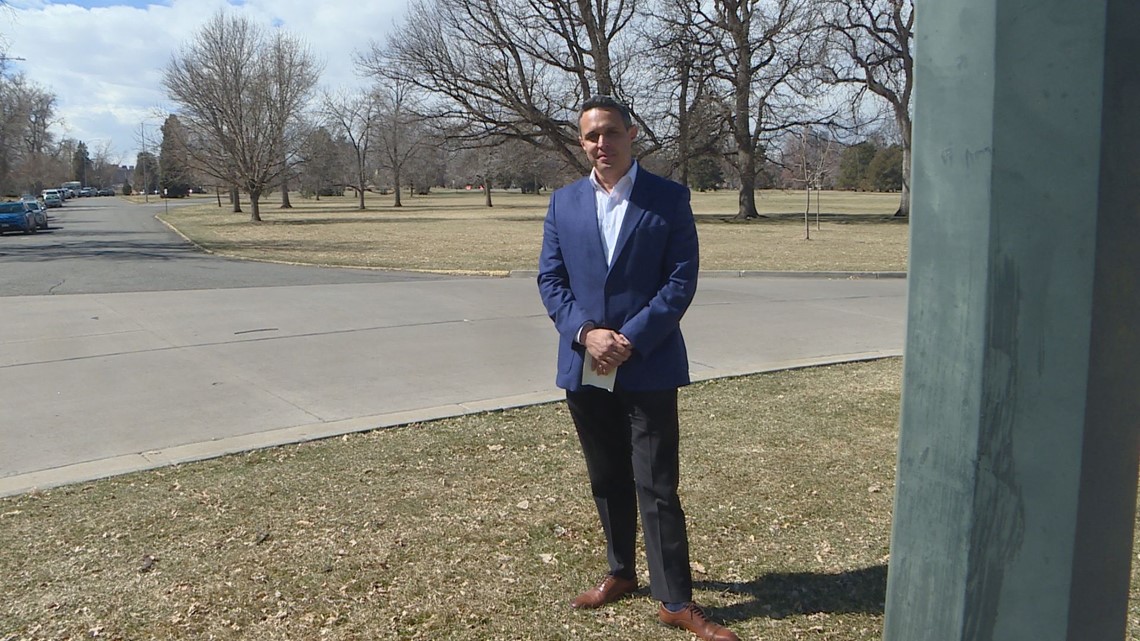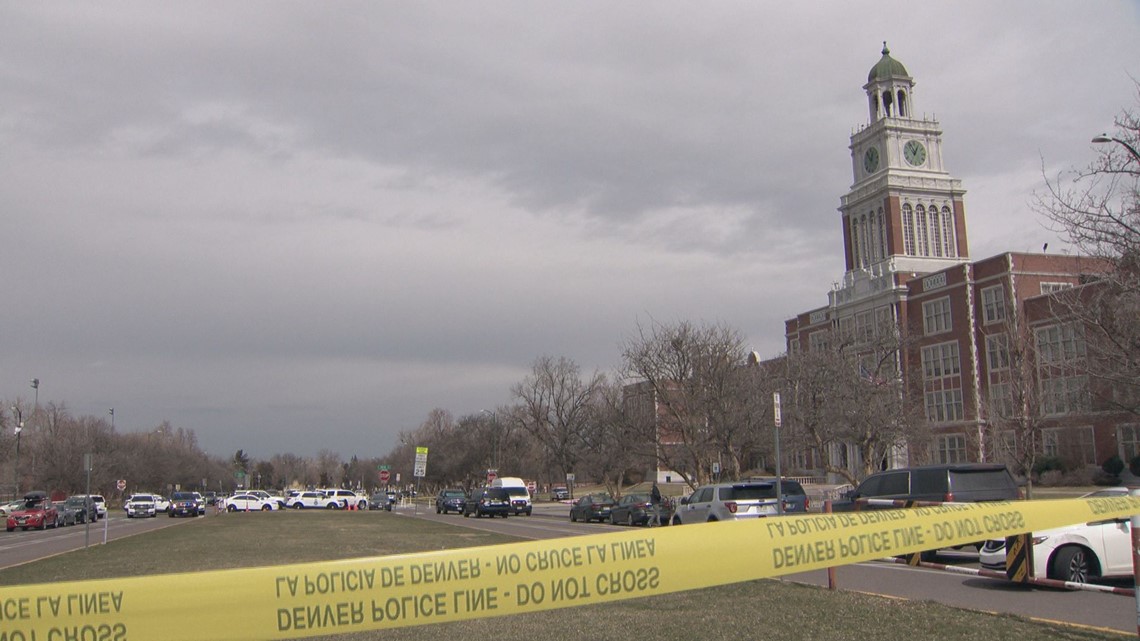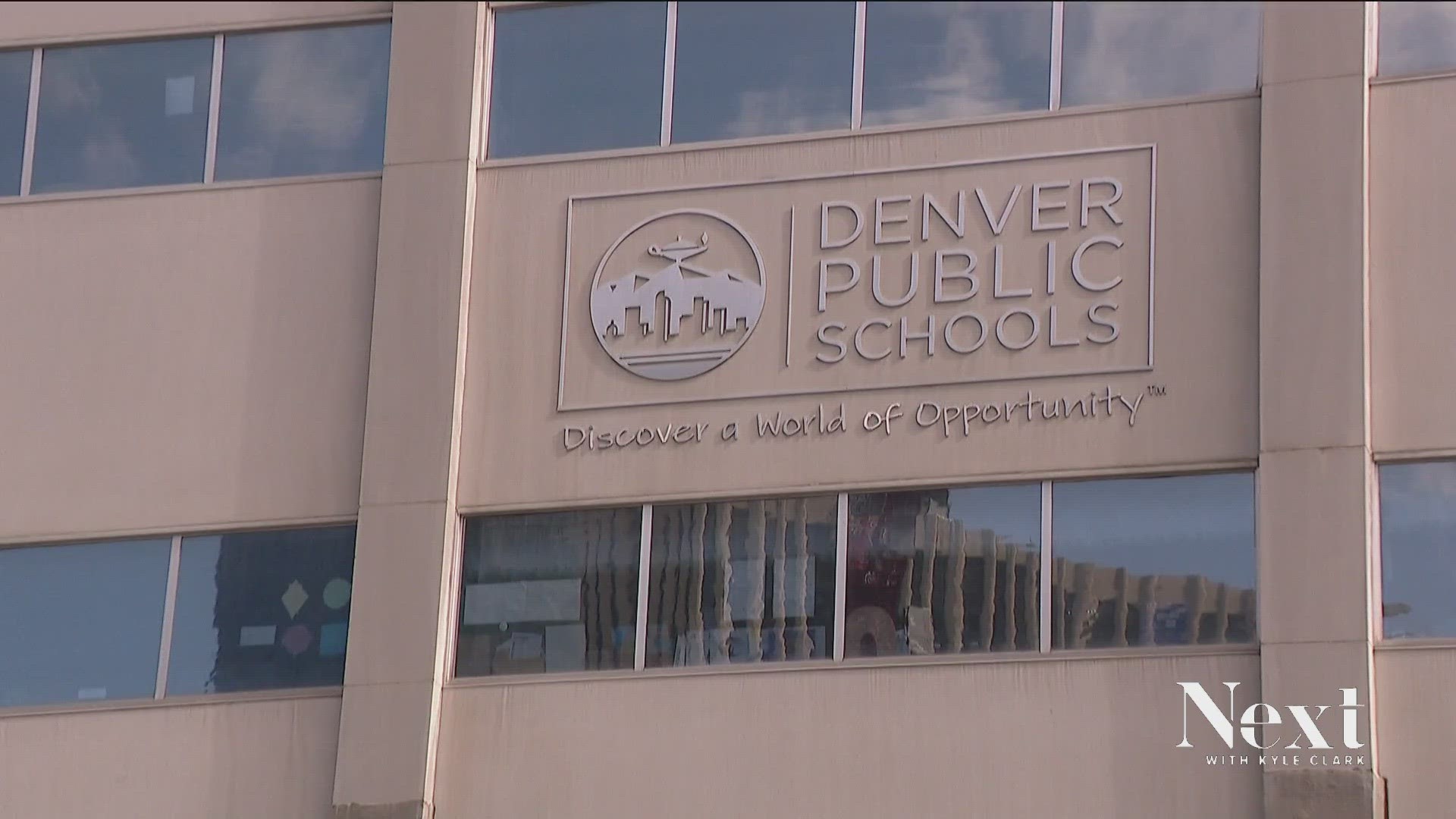DENVER — Just one day after two staff members were shot at East High School by a student, the Denver Public Schools Board voted unanimously Thursday to suspend a policy that prevented the district superintendent from allowing armed officers in schools.
The staff members were shot by the 17-year-old while he was being searched as part of a safety plan.
DPS Superintendent Dr. Alex Marrero has said Wednesday that armed officers would return to schools before the board's announcement. He'd acknowledged that the decision violated the order in place.
Denver Schools got rid of school resource officers (SROs) at the same time many districts nationwide did, during racial justice protests in 2020.
The school board noted in its resolution that Black and Latino students were disproportionately ticketed or arrested, specifically between the ages of 10-15, citing data tracked by the state.
Community leaders like Milo Marquez, who chairs the Latino Education Coalition, hope that more security in schools comes with more understanding this time.
"We feel that policing shouldn't be the only solution," he said. "We should have a mental health component associated with that … bringing in organizations that serve marginalized communities - brown and black communities – that have had the history of working with these communities to help solve this this mass violence and the mental health issues that are plaguing our communities."
The coalition expressed its support for putting armed officers in DPS but hope that there is more training for those officers when dealing with students that come from diverse backgrounds.
"We want to make sure that the folks that are in the schools that are working with them, police officers, SRO's have the training necessary to understand the trauma that our community has faced historically by the targeting of our students," Marquez said.


Trends around school-related arrests can vary depending on the report.
A study from the Annenberg Institute with Brown University found that SROs, "effectively reduce some forms of violence in schools, but do not prevent school shootings or gun-related incidents."
However, it also notes that, "...SROs intensify the use of suspensions, expulsions, police referrals, and arrests of students. These effects are consistently over two times larger for Black students than White students."
Mo Canady, executive director for the National Association of School Resource Officers, says training for officers, when it comes to issues surrounding cultural diversity, has grown.
"...we get to a point that we're really training these officers to use their frames of reference in a proper way, not only how maybe they were raised or where they lived and went to school, but how that can now relate to how they work with students in that school environment that they're in now," he said.
Canady added that in 2014 his organization added a block to their training that specifically focuses on cultural diversity issues, and that they consulted with experts to help develop the curriculum.
"This has to be a collaborative effort," he said. "This really is about relationship-based policing."


As for Marquez, he acknowledged the need for more security, but hopes trust can also build inside schools.
"So, it's hard for us as a community to always trust the police. But in situations like this, we know this violence is occurring. We know we need to find solutions. We know we need that support," he said.
A bill under consideration by the House Education Committee would require SROs to undergo training on an annual basis.
Right now, the bill notes that state law only encourages such training.
SUGGESTED VIDEOS: Next with Kyle Clark

